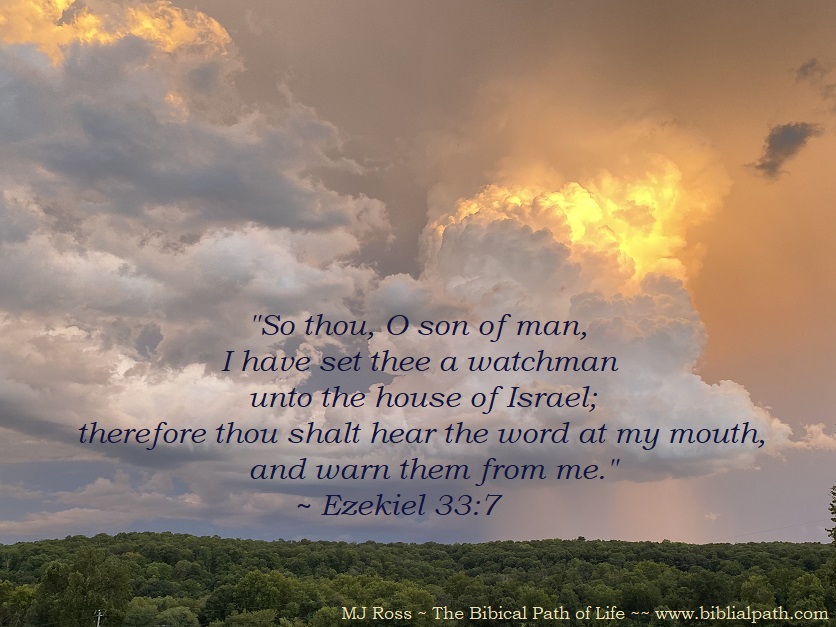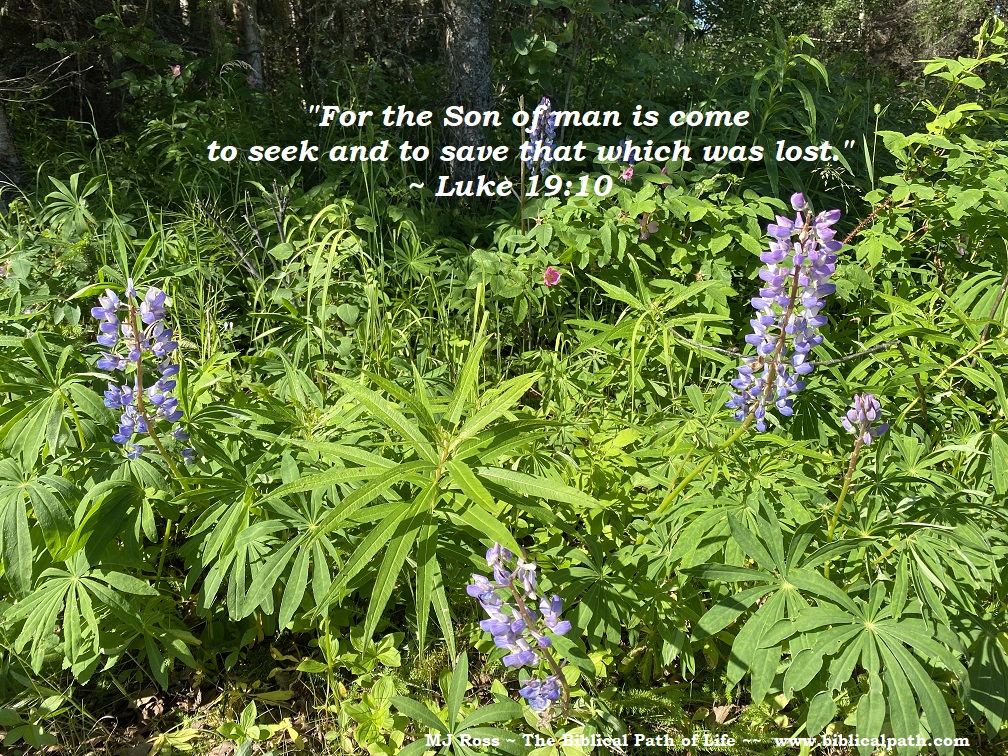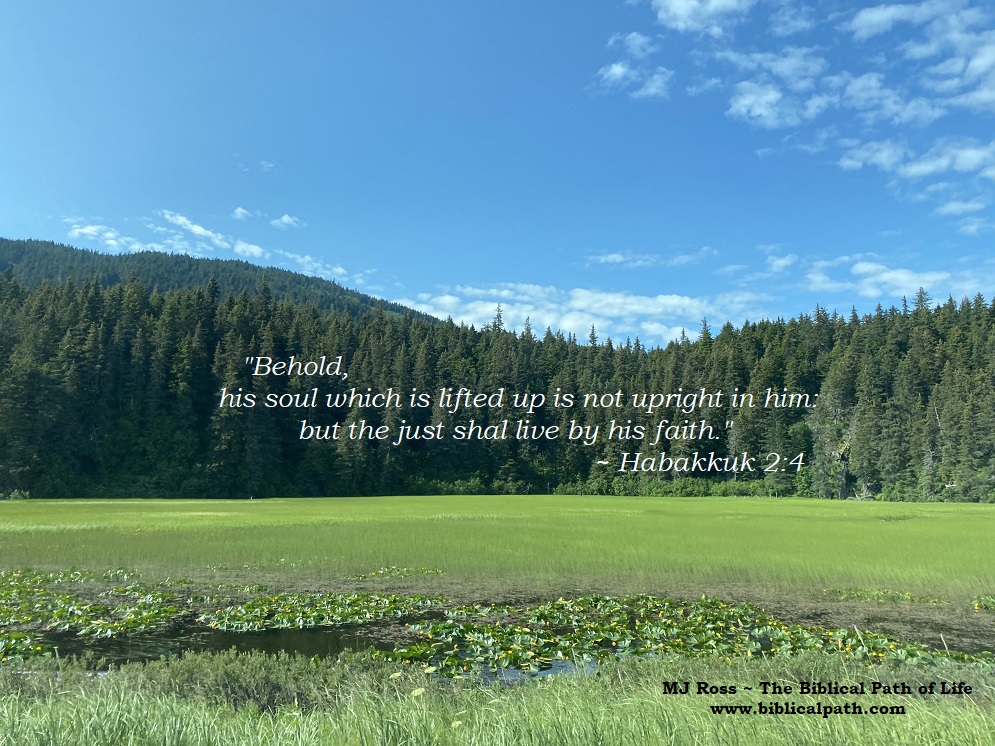
“Therefore I will judge you, O house of Israel, every one according to his ways, saith the Lord GOD. Repent, and turn yourselves from all your transgressions; so iniquity shall not be your ruin.”
Ezekiel 18:30
Ezekiel was taken captive by the Babylonians in the second taking of the people. God called Ezekiel to speak specifically to the children of the captives in Babylon. The children would live there, but after seventy years would be allowed to return to the land of Israel. “And go, get thee to them of the captivity, unto the children of thy people, and speak unto them, and tell them, Thus saith the Lord GOD; whether they will hear, or whether they will forbear” (Ezekiel 3:11). Ezekiel was to give the Words from God. The people had to choose if they would receive the message and act upon it, or not.
One important message God gave to Ezekiel was a warning with a specific call to His people: “Therefore I will judge you, O house of Israel, every one according to his ways, saith the Lord GOD. Repent, and turn yourselves from all your transgressions; so iniquity shall not be your ruin” (Ezekiel 18:30). Ruin means “stumbling block; it is an obstacle, a cause of falling or sinning”. They must understand that God would judge each life. It was up to each individual person (“every one”) to repent and turn from his or her sin (transgressions). God did not want sin to be their “ruin”; the obstacle between them and God. In turning from sin, they were to turn to Him – the same as it is today. Remember: the people of Israel were evicted from their land because of their sin against God, forsaking Him for idol worship, and refusing to repent (see 2 Chronicles 36:14-21). The obstacle of the people’s sin separated between them and God. However, the children who came after them would not be held accountable for their parents’ sins. Each one of them had the choice: the choice to repent and turn to God, or refuse to repent and remain in sin.
Remember what they should have already known. God did not want the people to die in their sins. He had made a provision for them, if they would only hear and obey. Each person had a choice: life or death. Moses had presented the choice to them many years before.
“14. But the word is very nigh unto thee, in thy mouth, and in thy heart, that thou mayest do it.
15. See, I have set before thee this day life and good, and death and evil;
16. In that I command thee this day to love the LORD thy God, to walk in his ways, and to keep his commandments and his statutes and his judgments, that thou mayest live…
17. But if thine heart turn away, so that thou wilt not hear, but shalt be drawn away, and worship other gods, and serve them;
18. I denounce unto you this day, that ye shall surely perish, and that ye shall not prolong your days upon the land…
19. … I have set before you life and death, blessing and cursing: therefore choose life, that both thou and thy seed may live” (Deuteronomy 30:14-19).
Moses had presented them with the choice as to how they would live here on earth and in the land God had promised His people. Ezekiel was reminding them of the same choice. Moreover, Ezekiel wanted the people to understand that this decision related to more than this earthly life in the here and now. There was an eternity to consider.
God never changes. God wanted to save people in the Old Testament times, New Testament times, and He still wants to save people today. However, God allows each person to choose – to believe, or to not believe. Understand that every person is a sinner before a holy and righteous God (see Romans 3:23). Moreover, all of man’s righteousness is as filthy rags in God’s sight (see Isaiah 64:6). But we should recognize how to have life eternal. “For God so loved the world, that he gave his only begotten Son, that whosoever believeth in him should not perish, but have everlasting life” (John 3:16). Whosoever believes in Jesus can have life! Instead of choosing continual sin, one must choose Jesus by faith: then he or she can have life. God wants all to understand: He judges each individual person on his or her response to Him. “He that believeth on him is not condemned: but he that believeth not is condemned already, because he hath not believed in the name of the only begotten Son of God” (John 3:18).
One must receive the righteousness of Jesus, who takes our sin and replaces it with His righteousness: “For he hath made him (Jesus)to be sin for us, who knew no sin; that we might be made the righteousness of God in him” (2 Corinthians 5:21). That comes by belief.
Just as Moses told the people: “But the word is very nigh unto thee, in thy mouth, and in thy heart, that thou mayest do it” (Deuteronomy 30:14). Paul recalled the same thing, quoting it in Romans: “8. But what saith it? The word is nigh thee, even in thy mouth, and in thy heart: that is, the word of faith, which we preach; 9. That if thou shalt confess with thy mouth the Lord Jesus, and shalt believe in thine heart that God hath raised him from the dead, thou shalt be saved” (Romans 10:8-9).
God leaves the choice with each individual as to whether he or she will believe. What happens if one chooses to reject the gift of salvation that Jesus offers? “He that believeth on the Son hath everlasting life: and he that believeth not the Son shall not see life; but the wrath of God abideth on him” (John 3:36).
What do you choose?
To turn from sin, receiving everlasting life.
Or
Have you chosen to have the wrath of God abide upon you?
Choose to Live by turning from sin: How to be saved.








